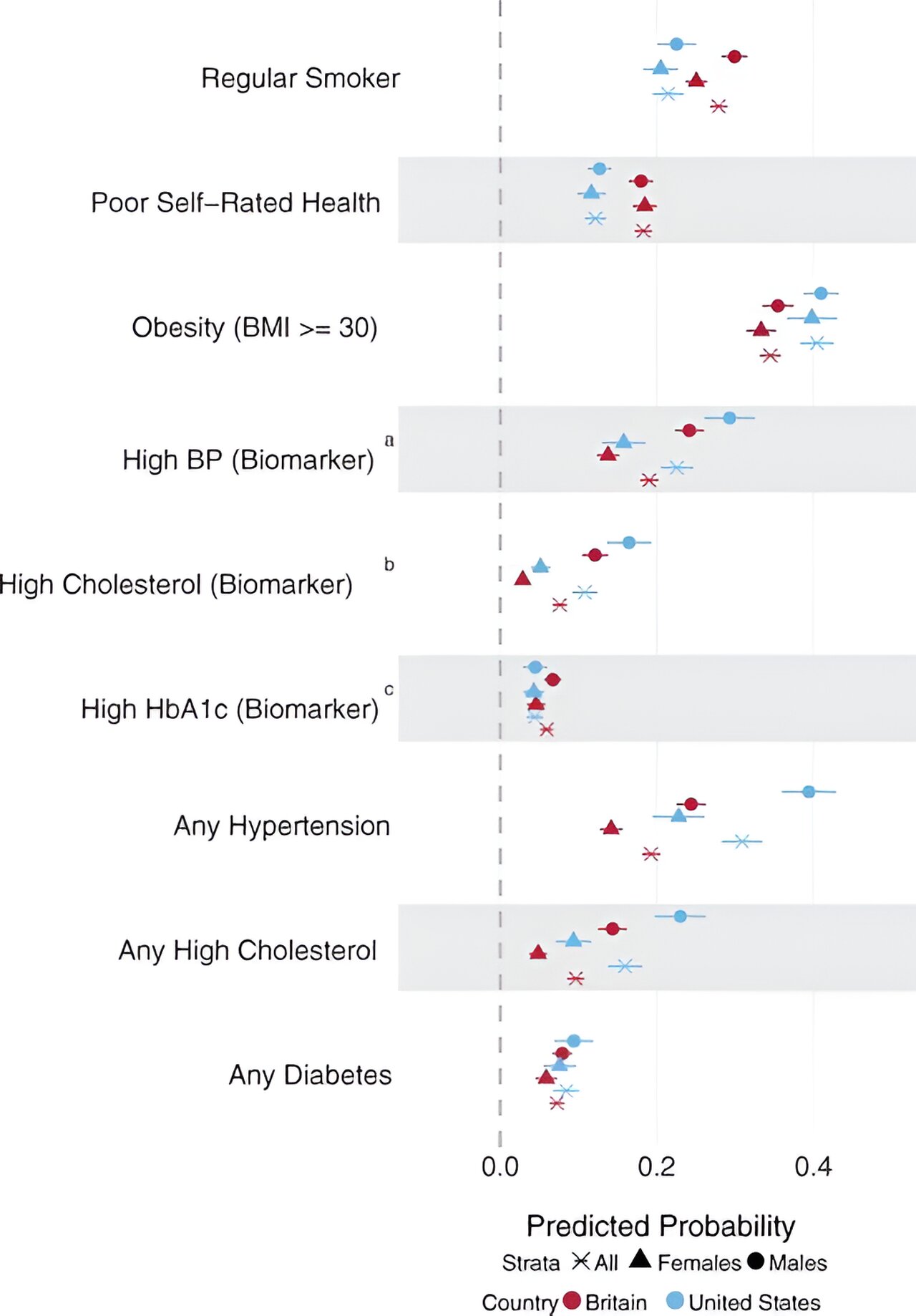
American adults have significantly worse health in midlife compared to their British peers, especially in markers of cardiovascular health, according to a new study involving researchers from Oxford’s Leverhulme Centre for Demographic Science, published in the International Journal of Epidemiology.
The study compared health measures such as smoking habits, weight, cholesterol levels, and blood pressure among American and British adults aged 33 to 46. It found that American adults have worse cardiovascular health and higher levels of obesity than their British counterparts, along with greater disparities in health by socioeconomic factors.
For several outcomes, including hypertension, high cholesterol, and obesity, even the most socioeconomically advantaged groups in the US had similar or worse health than the most disadvantaged groups in Britain. On the other hand, British adults rated their overall health worse on average and were more likely to smoke.
Co-author Professor Jennifer Dowd, Deputy Director of the Leverhulme Centre for Demographic Science and Oxford Population Health’s Demographic Science Unit said, “Despite the worse health of American compared to British adults in midlife, higher rates of smoking and growing obesity levels in Britain show that there is room for improvement in both countries. Worsening health trends in the US could serve as a warning for Britain and the need to focus on prevention and the broad social determinants of health.”
The study, co-authored by researchers at University College London’s (UCL) Centre for Longitudinal Studies, Syracuse University and University of North Carolina, compared data from the 1970 British Cohort Study in Britain and the Add Health study in the US. The analysis included data from almost 10,000 British people born in 1970 and 5,000 American adults born between 1976 to 1983. Participant’s blood pressure, cholesterol levels, Body Mass Index (BMI) and glucose were measured, and they also self-reported their smoking habits and quality of health.
Lead author, Dr. Charis Bridger Staatz from UCL’s Centre for Longitudinal Studies said, “Our new research shows that although British adults are more likely to believe that their health is poor, they tend to have better cardiovascular health than their US counterparts in midlife.
“While we were unable to directly investigate the causes of this, we can speculate that differences in levels of exercise, diets and poverty, and limited access to free health care may be driving worse physical health in the U.S. Given political and social similarities between the US and Britain, the US acts as a warning of what the state of health could be like in Britain without the safety net of the NHS and a strong welfare system.”
Co-author Dr. Andrea Tilstra, Marie Skłodowska-Curie Research Fellow at the Leverhulme Centre for Demographic Science and Demographic Science Unit added, “The unique combination of high inequality and a weak welfare state in the US may prove harmful for all groups throughout the life course. Even for the more advantaged in the US, the associated costs of health care are still substantial. Our paper highlights the opportunity to better understand the factors influencing health in both populations by comparing similarities and differences in policies and other environmental contexts.”
More information:
Charis Bridger Staatz et al, Midlife health in Britain and the United States: a comparison of two nationally representative cohorts, International Journal of Epidemiology (2024). DOI: 10.1093/ije/dyae127
Citation:
US adults in worse health than British counterparts at midlife, finds study (2024, October 3)
retrieved 6 October 2024
from https://medicalxpress.com/news/2024-10-adults-worse-health-british-counterparts.html
This document is subject to copyright. Apart from any fair dealing for the purpose of private study or research, no
part may be reproduced without the written permission. The content is provided for information purposes only.


